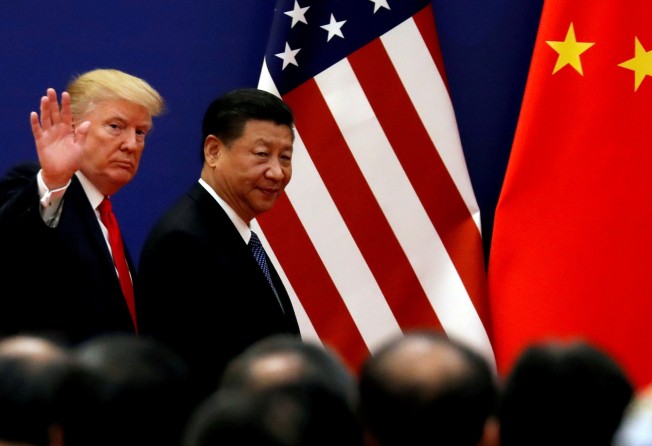Not every economist thinks the trade war is a huge deal; ‘look at the numbers’, says CME executive director
- ‘I think this is a time for bargain hunting in Chinese stocks,’ says CME’s Erik Norland

The economic impact of the trade war is not as bad as many people think, according to some economists, who recommend investors continue betting on China.
The escalating US-China trade war and technology rivalry has hit businesses and consumers, and shifted some supply chains away from China as companies attempt to offset risk. Growth in Chinese imports and exports has also faltered.
Many investors are worried about the prospect of a US recession too, particularly if differences between Washington and Beijing are not resolved. Just last week the price of spot gold, typically viewed as a safe haven asset, rallied to a five-year high.
But the real impact is not actually that severe and investors should continue to bank on the strength of China’s economy, which is unlikely to suffer a hard landing this year, some economists said.
“The trade war impact is a lot smaller than what a lot of people seem to worry about, or seem to think,” said Erik Norland, executive director and senior economist for global markets company CME Group.
“I think this is a time for bargain hunting in Chinese stocks.
“People read about what is going on, and they think it’s a really big deal, but when you look at the numbers it’s not so big.”
Without policy adjustments by the two countries to offset the effects, Trump’s original 10 per cent tariffs created US$20 billion dollars’ worth of new tax, according to CME estimates. Half was paid by China through reduced exports to the US, and half by US consumers through “infinitesimally higher consumer prices”.
According to CME, that set of tariffs slowed China’s growth rate by about one-tenth of 1 per cent.
The more recent escalations, which saw Washington boost tariffs to 25 per cent on US$200 billion worth of goods imported from China, increased the total tax to US$50 billion, said Norland.
The effects are not yet reflected in economic data from the US or China, but CME predicts China’s economy will slow only by “about three-tenths of 1 per cent, approximately, assuming they don’t do anything to offset it, which they will almost certainly do,” said Norland.
In this light, China’s economy is unlikely to suffer a hard landing this year, said Wang Qian, chief economist for Asia-Pacific at US-based asset management giant Vanguard.
Beijing, she said, “has a deep pocket of policy tools that can ensure smooth, near-term stability” even if the trade war continues.
Already Beijing has cut taxes, raised spending and eased monetary policy to make sure its strong economy keeps growing, noted CME’s Norland.
Vanguard expects China to achieve 6.2 per cent GDP growth in 2019, as does the International Monetary Fund, which lowered its forecast from 6.3 per cent earlier this month because of trade relation uncertainties.
The forecasts still fall within the target range of 6 to 6.5 per cent set by the Chinese government in March.
There is much anticipation about the upcoming meeting between Presidents Trump and Xi at the G20 summit in Japan this weekend. Both Vanguard and CME expect it to be a turning point in negotiations, which is unlikely to further escalate.
Wang said in her base-case scenario of no trade war escalations, Beijing in the second half of the year will probably roll out modest additional stimulus such as a downward adjustment of interest rates, on top of the supportive policies it has already announced.
Inflation is unlikely to limit the Chinese central bank’s ability to provide monetary stimulus, because non-food inflation should remain stable given the country’s overcapacity in steel and smaller cities’ property, she said.
Thus the People’s Bank of China could overlook the headline inflation number – which hit a 15-month high in May on the back of surging pork prices – and focus on the growth of the economy in making policies, Wang said.
Another major risk factor that has weighed on global investment sentiment is the possibility of a US recession, as indicated by an inverted US bond yield curve.
Wang, however, said she does not see a recession in the US this year or next, even though the GDP growth rate could slow to 3.3 per cent this year from 3.6 per cent in 2018.
That is because there is no apparent bubble in the economy, and the Federal Reserve still maintains a very accommodating policy, she said.
Vanguard sees only a 30 per cent chance of a US recession this year.